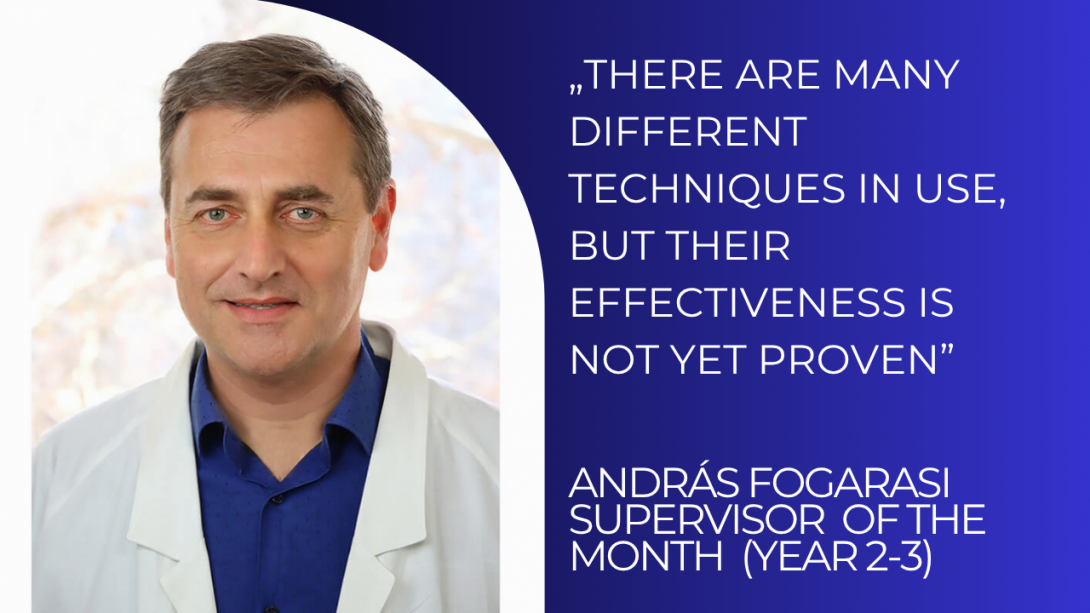
He has demonstrated a high attendance rate in the upper years' Pediatrics Group and has provided valuable input and support, contributing significantly to the group's progress. His students are researching exciting topics, and their results are very encouraging. In April, András Fogarasi was named Supervisor of the Month (Year 2/3) at the Centre for Translational Medicine.
Dr. Fogarasi is the deputy director of Bethesda Children's Hospital, a professor of András Pető Faculty, Semmelweis University, and one of the group leaders at CTM's Pediatrics Group (Year 2/3). He supports the work of the group with great dedication, gives advice to students on topics such as SMA, and helps them with methodological advice. As a supervisor, he assists two Ph.D. students. One of them is Dr. Tímea Lőrincz-Molnár, a resident at Bethesda Children's Hospital, while the other is Dorottya Kenesei, a conductor at András Pető Faculty, Semmelweis University. „Tímea researches in the field of neurology, focusing on epilepsy. She wants to find out how video-EEG monitoring can help in the differentiation of childhood epileptic seizures and paroxysmal non-epileptic events. Differentiating these two problems is essential, because if it’s epilepsy, then medication is needed, but if it is something else, then it’s unnecessary.” The importance of this topic is demonstrated by the fact that approximately 1% of children have epilepsy, and nearly 40% of children with paroxysmal non-epileptic events are misdiagnosed.
„Tímea is making excellent progress with her research, and her meta-analysis is now under review. Her second project is an in-house research based on our hospital's epilepsy database. She analyses video recordings and determines which ones show epilepsy and which ones do not. We can already use the results of this research, because Tímea has found some elements that allow her to distinguish between epileptic seizures and paroxysmal non-epileptic events. This can be a great help in cases where there are videos recorded by parents.”
Dorottya Kenesei researches in another field: as a conductor, she compares therapies for cerebral palsy. „There are many different techniques in use around the world, but their effectiveness is not scientifically proven, it is only demonstrated by experience. Launching a clinical trial for these methods is very difficult because it is impossible to set up a control group for these therapies. For this reason, Dorottya started her research by doing a meta-analysis, reviewing all the articles on therapeutic interventions, surgeries and drug therapies used in cerebral palsy. She wants to find out the most effective therapies for people with cerebral palsy. A manuscript on this will be completed soon.” In her second project, Dorottya will investigate the effectiveness of Pető conductive therapy. She will conduct a clinical trial to find out whether interval conductive pedagogical rehabilitation improves the quality of life in cerebral palsy better than non-interval therapy. The protocol of this randomized clinical trial is already in the pipeline. Based on this protocol, a pilot program could be launched this summer.
(Szabó Emese)